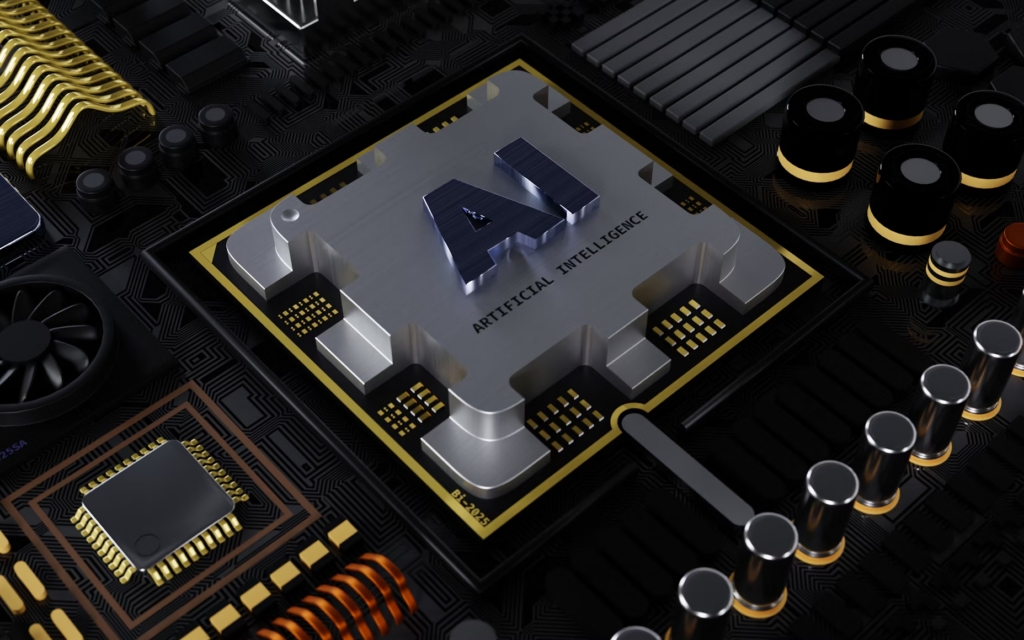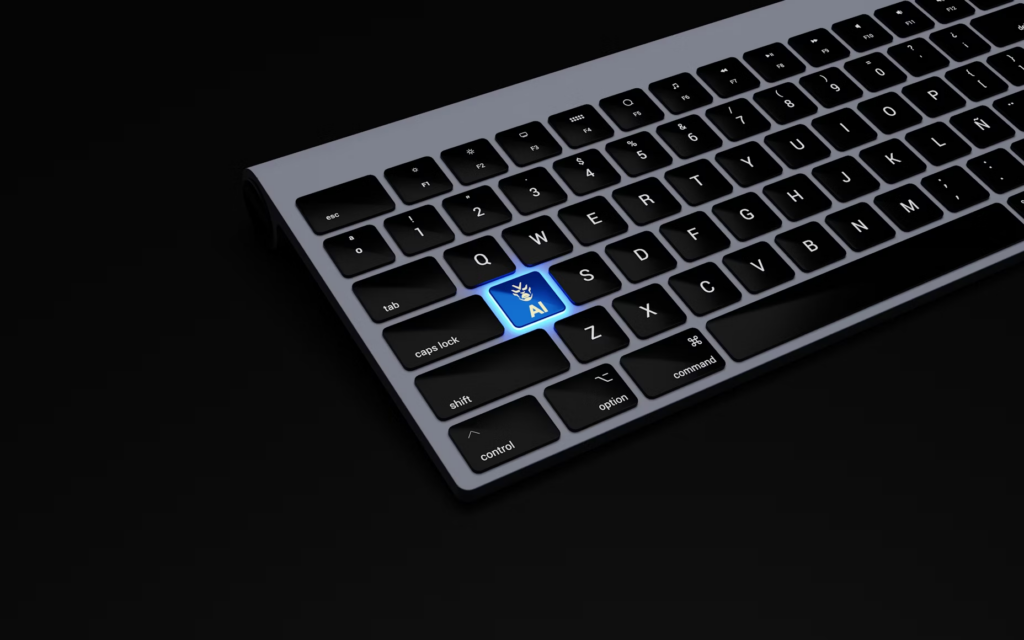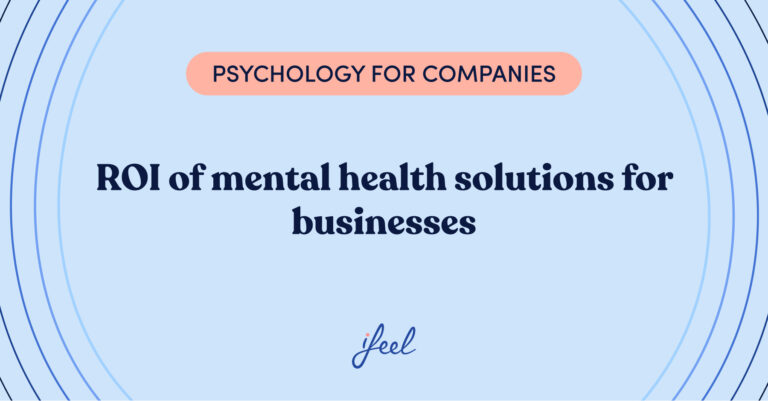Nowadays, the rapid advancement and evolution of technology has forced companies to recognise the importance of integrating technological solutions in their processes to stay ahead of the curve. Otherwise, organisations that choose not to implement Artificial Intelligence tools run the risk of stagnating and falling behind in a rapidly evolving competitive market.
For this reason, many companies are already seeing HR departments begin to explore and adopt advanced technological solutions, making implementing AI tools for HR a strategic priority. These tools promise not only to increase operational efficiency but also to free up valuable time for HR professionals to focus on more strategic and value-added tasks.
To help in this process, ifeel has developed a free downloadable HR AI implementation strategy that will help you evaluate your processes and guide you step-by-step in adapting AI to your organisation.
Why is the use of AI tools for HR relevant?
Implementing AI tools for HR can significantly transform the way companies manage their talent. These technologies can automate repetitive administrative tasks, improve decision-making accuracy and personalise training and development programmes.
In addition, AI tools for HR facilitate the recruitment process, provide continuous performance reviews, and enable predictive analysis of employee turnover. Ultimately, the adoption of AI in HR departments not only optimises internal processes and reduces costs, but also improves employee satisfaction and engagement, enhancing the strategic value of the HR department.
For this reason, according to studies, 41% of companies are already using AI in their HR operations, and this figure is expected to increase in the coming years.
Sabrina Kruse, Head of HR for EMEA and the Diversity, Inclusion and Engagement Group at ifeel partner SCOR, said:
“Looking ahead, trends like increased digitization, data analytics, and a heightened emphasis on ESG factors will shape our industry. The executive board will play a pivotal role by championing innovation, fostering a dynamic work culture, and prioritizing talent development.”
Areas of implementation of AI tools for HR
Key areas of application for AI for HR tools include
| Area | Description |
|---|---|
| Recruitment and selection | AI can automate the process of filtering resumes and initial candidate assessments, reducing time and costs associated with recruitment. |
| Performance management | AI tools can analyse performance data and provide personalized feedback, helping employees improve their skills and competencies. |
| Training and development | Using machine learning, AI can customise training programs according to the individual needs of employees. |
| Workplace environment analysis | AI can conduct surveys and data analysis to identify organisational issues and opportunities, improving employee well-being and satisfaction. |
Importance of the human touch in implementing AI tools
While AI tools can automate and improve many HR processes, it is essential not to lose sight of the importance of the human touch. Interpersonal relationships and understanding the individual needs of employees remain critical in talent management.
Employees value the recognition and empathy that only humans can offer, and these are crucial to fostering a healthy and productive work environment. For this reason, AI tools for HR should be seen as a complement that enhances human capabilities, not a replacement.
By combining technology’s efficiency and accuracy with human empathy and judgement, organisations can achieve an optimal balance that maximises productivity and employee satisfaction.
In short, the key is integrating AI to support and amplify the human touch, allowing HR professionals to focus on more strategic tasks and building meaningful working relationships.
Guidance for HR AI tool selection
Implementing AI tools for HR can streamline numerous processes and improve operational efficiency.
To help in this process, ifeel has developed a free downloadable AI implementation strategy that will help you evaluate your processes and guide you step-by-step in adapting AI to your organisation.
The following is an overview of the steps to evaluate, select, and implement AI tools for HR in your organisation.
Step 1: Assess current processes
Before implementing any AI tools for HR, it is crucial to assess your organisation’s and department’s current processes to make informed decisions. Here are some key questions that can help clarify the starting point in your organisation to guide this assessment:
- Has your company already implemented AI?
- What tasks can be automated or improved through AI?
- Recruitment and selection
- Performance evaluation
- Training and development
- Work climate analysis
- What are the specific objectives I hope to achieve by implementing AI?
- What specific processes in the department would benefit?
- What type of data is needed to feed the AI tools?
- What technology is best suited to my company’s needs and resources?
- What are the potential ethical and legal challenges associated and how do I plan to address them?
- How will the implementation of AI affect the interaction between employees and HR?
- What impact will it have on HR staff and what additional training will they need?
- How will I measure the success and impact of the new tool on the department?
- Is there a backup plan in case of unexpected problems?
Answering these questions will help you assess whether the implementation of AI is appropriate for your HR department and plan for its further integration.

Step 2: Identify your company’s specific needs
Define the clear objectives you hope to achieve by implementing AI tools for HR and the specific processes that would benefit. Assess the particular needs of the organisation:
- Specific objectives: Set goals such as improving the efficiency of recruitment or the accuracy of performance appraisal.
- Processes benefited: Identify which departmental processes will be improved.
- During this process, consider potential ethical and legal challenges associated with AI implementation, such as data privacy and fairness in decision-making.
Step 3: Assess budget and available resources
Consider the total cost of the tool, including implementation, training, and maintenance costs. Also, assess whether your team has the technical capacity and knowledge to handle the new technology.
Step 4: Prepare the data
Ensure that the data is of high quality and up-to-date to maximise the effectiveness of the AI tool. Also, ensure that the selected solution can be seamlessly integrated with the company’s existing systems:
Step 5: Select the appropriate tool
Research the different solutions available on the market and compare their functionalities, advantages, and disadvantages. Implement a pilot project to evaluate the effectiveness of the selected tool before full deployment.
Step 6: Training and adaptation
Monitors and evaluates the performance of the implemented solution and employees’ engagement with it. Provide adequate training to staff to ensure they can use the new technology effectively. Ensure that a system is in place to evaluate performance and provide technical support.
Step 7: Evaluation and continuous improvement
Use metrics and analytics to evaluate the impact of AI tools on HR processes. Collect and analyse employee feedback and make necessary adjustments to improve the effectiveness of the implemented tools.

Trust the leaders
At ifeel, we know that the selection and implementation of AI tools for HR is a complex but crucial process for organisations looking to improve their efficiency and employee satisfaction.
To support companies in this process, our team of expert workplace well-being psychologists has created a mental well-being solution for businesses that improves talent retention, reduces presenteeism, and combats employee stress.
With our mental well-being solution, your company’s HR managers can receive personalised, data-driven advice on improving mental health at work. In addition, this solution offers employees a 360° mental well-being service structured at different levels according to their needs. Try our solution now to see how it could help you.
We hope you found this article about AI tools for HR interesting. If you would like more information about our mental well-being solution for companies, simply request it, and we will contact your team as soon as possible.







